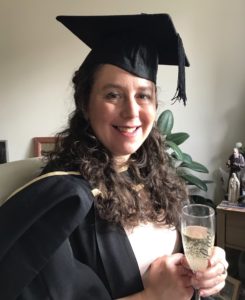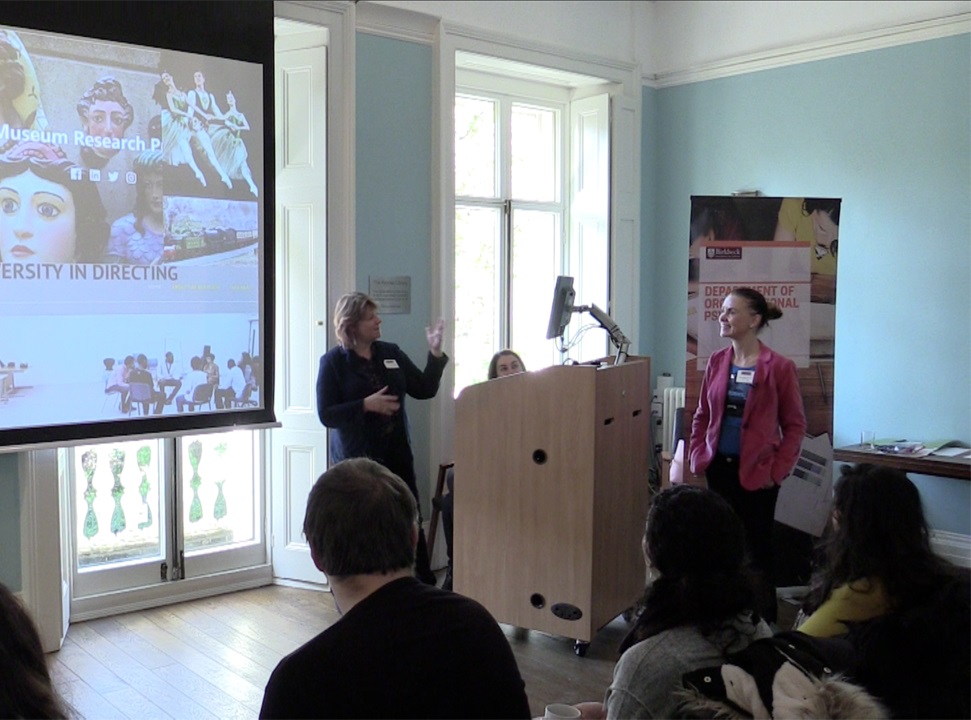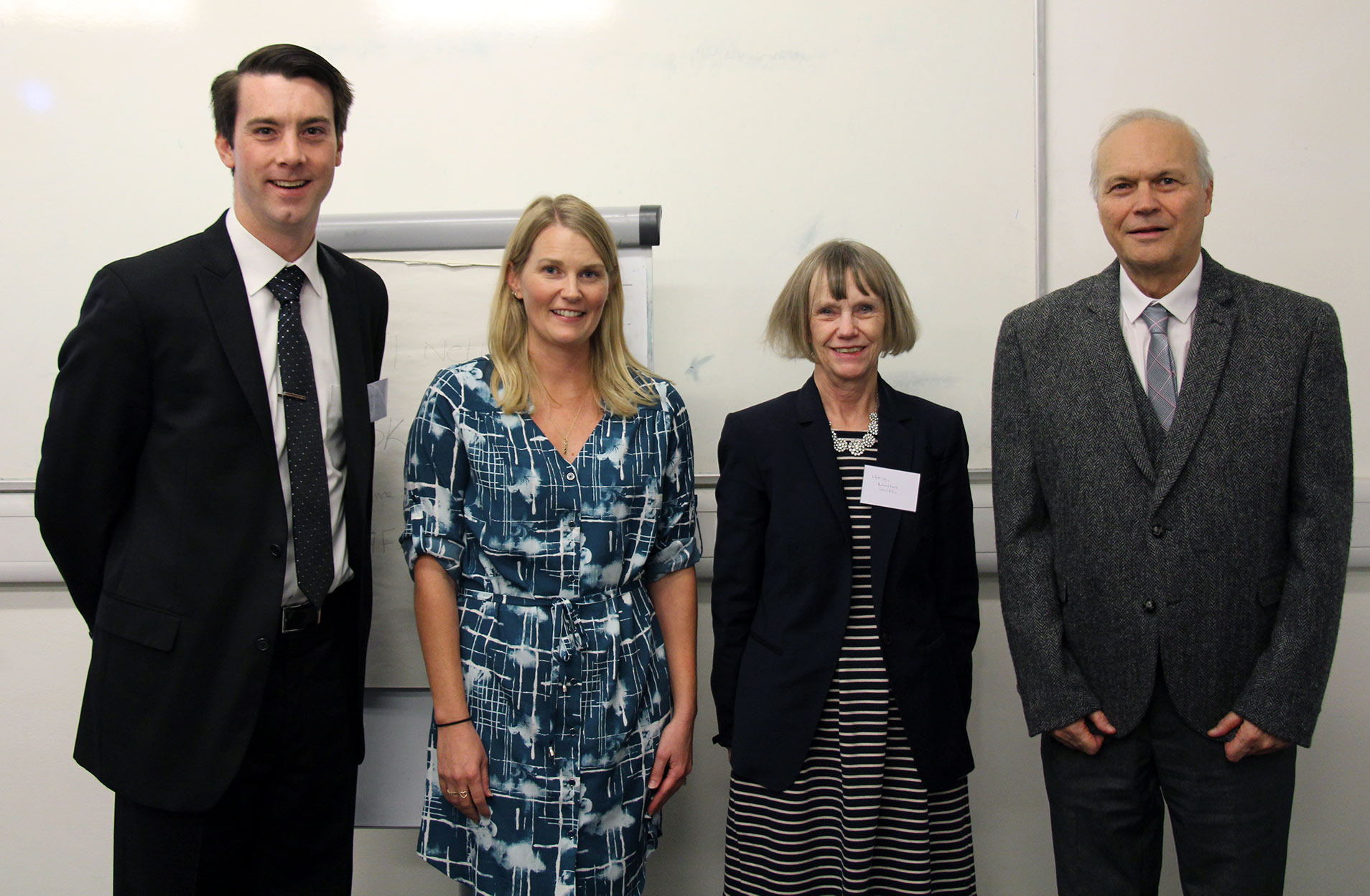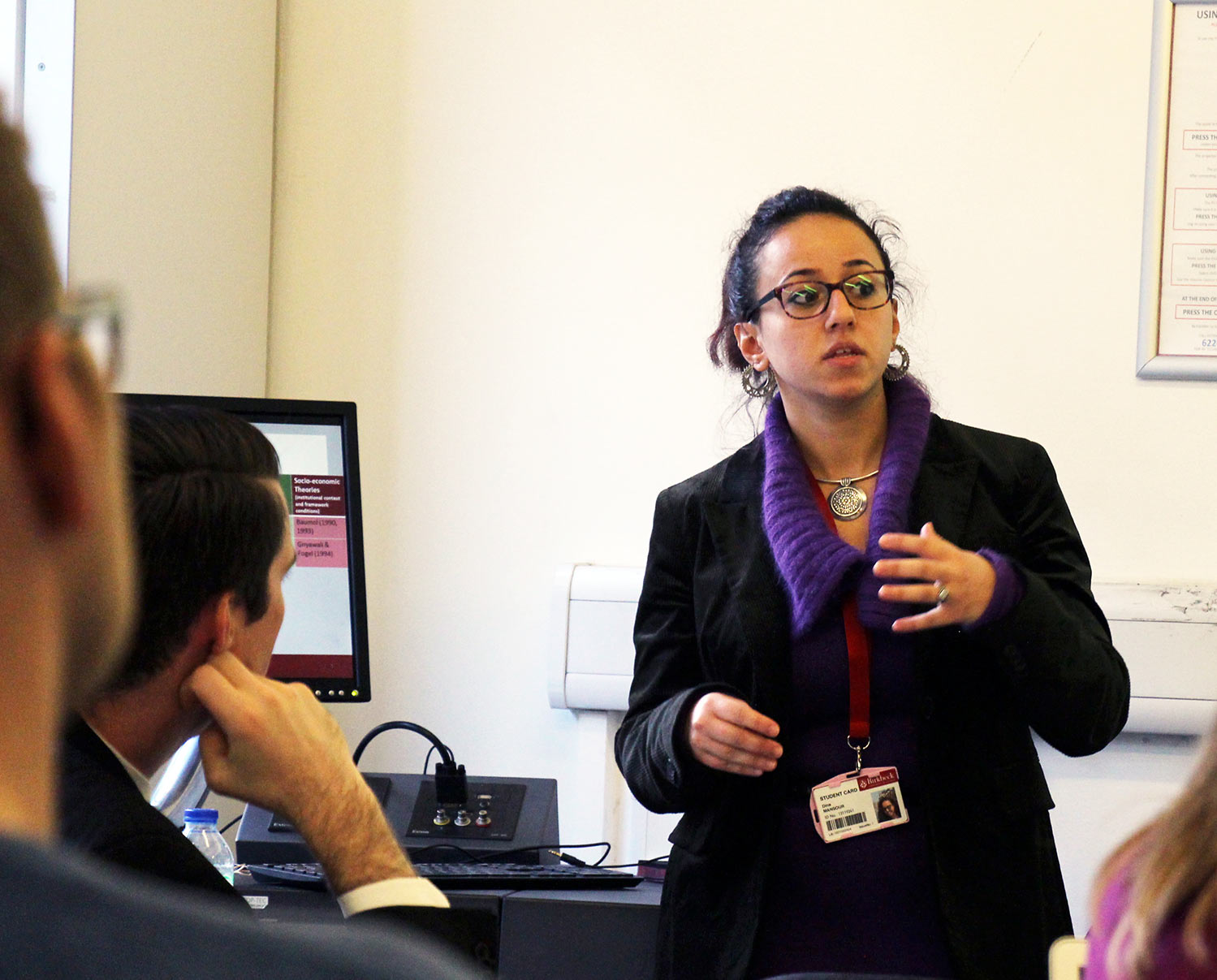The Senior Associate Editor for the Journal of Business Research and Global Real Impact Editor for the Journal of Knowledge Management joined the Department for a virtual presentation on how to publish in top management journals.
Meet-the-Editor Sessions are free for anyone to join.
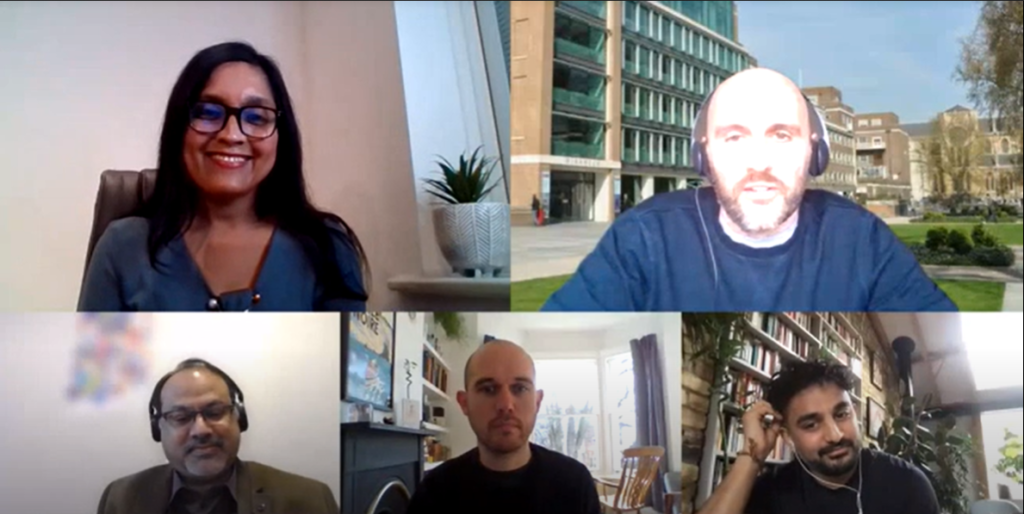
Dr Muthu De Silva (top left) and Dr Geoff Walters (top right) introduced this presentation by Professor Vijay Pereira (bottom left).
Dr Muthu De Silva, Director of Research and session chair opened the discussion by sharing the objective of the Meet the Editor series: to motivate and support our community of excellent scholars to thrive in research, during this difficult time.
While we are all missing face to face contact with colleagues across Birkbeck and beyond, it has to be said that lockdown has presented opportunities to be more creative and geographically ambitious with events in the School of Business, Economics and Informatics, as Dr Geoff Walters, Executive Dean reminded the audience during the welcome speech. Around fifty researchers in the field of Management tuned in to this online talk by Professor Vijay Pereira of NEOMA Business School, France, designed to provide greater insight into the types of research that top management journals are looking to publish.
As Senior Associate Editor for the Journal of Business Research and Global Real Impact Editor for the Journal of Knowledge Management, as well as a member of the editorial board for a number of other journals (e.g. Journal of Management Studies), Professor Pereira has extensive knowledge of prestigious publications, commenting on the ‘outside the box’ thinking that he brings to academia and the journals on which he works.
In this session, Professor Pereira provided a detailed introduction to the ethos and outlook of the Journal of Business Research and the Journal of Knowledge Management, along with his advice for those looking to publish in these journals.
Journal of Business Research
The Journal of Business Research (JoBR) is a UK ABS 3* and ABDC ‘A’ journal. Firstly, Professor Pereira highlights the importance of understanding the scope of the journal in which you wish to publish. In the case of JoBR, in addition to the theoretical rigour, the journal aids the application of empirical research to practical situations and theoretical findings to the reality of the business world. This practical underpinning is reflected by JoBR’s broad target audience, which includes executives alongside scholars and researchers.
JoBR has a somewhat unique organisational structure, with two Editors-in-Chief, three to four Deputy Editors-in-Chief, five Special Issue Editors and 65 Associate Editors covering sixteen discipline areas – this number is large but unsurprising considering that JoBR receives 4,500 -5,000 submissions a year! While publication is competitive, the journal’s 6% acceptance rate represents a significant number of papers, so Professor Pereira warns not to be discouraged from applying.
There are three key points to consider when submitting to JoBR:
- The quality of the theory
- Robust data or concepts
- Real-world implications for business or management situations
There are also three key points to consider in terms of the journal’s positioning:
- JoBR is international in scope, looking for work from new contexts and new scholars and continuing to grow globally
- The journal has moved from being marketing focused to being interdisciplinary covering a wider range of management disciplines, such as international business and innovation
- JoBR has a key focus on impact – it is the number one cited marketing journal according to Google Scholar’s H Index
Keeping the three I’s of international, interdisciplinary and impactful in scope is key for researchers submitting to this journal.
Journal of Knowledge Management
In the second part of this presentation, Professor Pereira discussed the Journal of Knowledge Management, a leading journal in this field with an ABS 2* and ABDC ‘A’ rating.
To Professor Pereira’s knowledge, the Journal of Knowledge Management is the first journal to have a Global Real Impact Editor and has also recently appointed Regional Real Impact Editors.
Putting impact at the front and centre of the work it looks to publish, the Journal of Knowledge Management invites pieces by scholars, academics and individuals from industry. It is similarly international in scope, with articles from China, India, Brazil, France and the UK in the pipeline. The journal looks to maximise the diversity of its output without compromising on quality, and a focus on impact from the beginning of the process enables it to do this.
A focus on the practical impact and applicability of research is therefore key when submitting to this journal.
We would like to thank Professor Pereira for his time and for an insightful and informative start to our Meet the Editor Series. All are welcome to join us for our upcoming Meet the Editor events:
Further Information:
